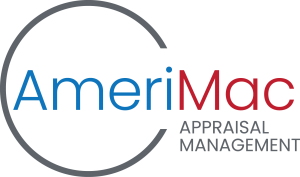
- 877-241-5144
- M-F: 8am to 8pm
A reverse mortgage appraisal is an evaluation of a property’s value to determine how much money can be borrowed through a reverse mortgage. It takes into account factors like the condition, size, and location of the property. The appraisal is important because it helps lenders assess the risk associated with the reverse mortgage loan.
In the context of reverse mortgages, a crucial aspect is ensuring that the property’s value aligns with the loan terms, making the reverse mortgage appraisal process significant. This determination of the true value of the home holds immense importance in the loan approval process. It’s noteworthy that appraisal management companies play a vital role in conducting the appraisal process accurately and ethically by providing licensed appraisers. Moreover, the reverse mortgage appraisal report, reflecting the current home value, significantly aids in the loan application process.
When conducting a reverse mortgage appraisal, appraisers meticulously compare the subject property to similar homes in the immediate area, taking into account recent sales and the property’s condition. Factors such as the condition adjustment and the home’s age influence the appraised value. The timely delivery of the electronic appraisal report plays a crucial role in the loan process, ensuring swift access to vital information. Additionally, an appraisal management company oversees the coordination of the appraisal process, rectifying any factual errors that may arise. This professional and attentive approach guarantees the accuracy and reliability of the appraisal.
When applying for a reverse mortgage, the lender will require an appraisal to determine the value of your home. The cost of this appraisal is typically paid by the borrower. The lender may also require a credit report to be run as part of the application process. This report provides information about the borrower’s credit history and creditworthiness. Third-party closing costs such as document preparation, wiring, title transfer, and recording fees may also be required. It’s important to keep in mind that some of these costs may be negotiable or eligible for lender credits to help alleviate some of the financial burden on the borrower.
Verifying the value of your home through the reverse mortgage appraisal process is essential to ensure it aligns with loan terms and conditions. The condition of the property has a direct impact on loan approval and interest rates, making it crucial to determine its overall state. An accurate appraisal report provides mortgage lenders with informed valuation insights, guiding them in the loan approval process. Appraisal management companies play a significant role in conducting the appraisal process, ensuring the accurate determination of the property’s value. The reverse mortgage appraisal report stands as a pivotal element in the loan application, influencing the terms and approval, making it an indispensable part of the entire process.
When applying for a reverse mortgage, it is important to work closely with your loan officer. They can guide you through the process of scheduling an appraisal and provide you with valuable information on what to expect during the appraisal. Your loan officer can also help you prepare for the appraisal by reviewing any necessary paperwork and answering any questions you may have. It’s important to have a good relationship with your loan officer so that they can advocate for you throughout the entire reverse mortgage process.
An appraisal plays a crucial role in the reverse mortgage process. It determines the property’s value and condition, influencing loan approval and terms. Appraisal management companies oversee the process to ensure accuracy and adherence to standards. The appraised value affects the loan balance and interest rates.
To be eligible for a reverse mortgage appraisal, the homeowner must meet certain criteria. Firstly, the minimum age for applying for a reverse mortgage is usually 62 years. The homeowner’s current location also impacts eligibility, as the estimated home value for the reverse mortgage is calculated based on the location. Additionally, the property itself must be in good condition to pass the appraisal process, ensuring that it meets the standards set by the Federal Housing Administration (FHA). This includes having the necessary amenities and being in a state of good repair. Furthermore, the type of loan, whether it’s a manufactured home or a traditional single-family dwelling, can also affect eligibility for a reverse mortgage appraisal.
Applying for a reverse mortgage requires meeting a minimum age requirement, a critical factor in the appraisal process. The homeowner’s age directly impacts loan terms and property value during the reverse mortgage appraisal. Consequently, the appraisal report reflects the current home value, influencing the approval process and loan terms. This age-related criterion significantly affects the loan application process, as the appraised value of the home is influenced by the homeowner’s age. As a result, meeting the minimum age requirement is essential to progress through the reverse mortgage appraisal process seamlessly, ensuring favorable loan terms and property valuation.
The location of the homeowner plays a crucial role in the reverse mortgage appraisal process, directly impacting the property’s value. An appraisal management company is responsible for coordinating the reverse mortgage appraisal to ensure that the property reflects the current market value of the location. During the appraisal process, the homeowner’s current location is taken into account, influencing both the loan approval and property value. The resulting reverse mortgage appraisal report indicates the property’s value based on the market value of the current location, which in turn affects the loan terms. Appraisal management companies play a vital role in overseeing the appraisal process, ensuring that the property’s value accurately represents the current location’s market value.
In the reverse mortgage application process, estimating the home’s value is essential. Licensed appraisers from appraisal management companies accurately assess the estimated home value. These companies oversee the entire reverse mortgage appraisal, ensuring accurate property valuation. The resulting reverse mortgage appraisal report directly influences the loan terms and approval process by reflecting the current home value. This value is a key factor in determining the loan balance and interest rates offered to the borrower.
Understanding the specifics of reverse mortgage appraisal guidelines is essential for an informed buyer. Mortgage lenders typically require a good condition of the home for the first appraisal. They also consider factors such as new appliances and cabinet doors, which can contribute to a higher value. In some parts of the country, large lots or manufactured homes may have a lower value compared to comparable homes in urban development. It’s important to comprehend HUD rules and the HUD HECM program, including the need for a HUD case number and the potential for a second appraisal, to navigate the complexities of reverse mortgages effectively. Also, electronic appraisal delivery and obtaining a copy of the appraisal are crucial steps in the reverse mortgage process, especially when dealing with a new lender.
Before taking out a reverse mortgage, borrowers can use a reverse mortgage calculator to estimate their potential amount of proceeds. This calculator takes into account factors such as outstanding mortgage balances, property taxes, and maintenance costs that can lower the borrower’s available proceeds. It is important to consider the downsides of reverse mortgages and speak with a licensed loan advisor if you have any questions about the reverse mortgage appraisal process or reverse mortgages in general.
Reverse mortgages can be a valuable financial tool for seniors, allowing them to convert a portion of their home equity into cash. However, before the loan process can begin, a crucial step that must be taken is the reverse mortgage appraisal. In this blog, we will provide a comprehensive understanding of the reverse mortgage appraisal process, its significance, the reasons behind the requirement, and eligibility criteria. We will also discuss how recent changes in FHA regulations impact reverse mortgage appraisals, and provide tips on how homeowners can increase their home value to obtain a better appraisal.
FHA appraisal guidelines play a crucial role in shaping the outcome of reverse mortgage appraisals, directly influencing the process and its results. The condition and market value of the home holds significant weight in determining the appraisal value, impacting the overall appraisal guidelines. Appraisers meticulously assess the property’s condition and compare it with similar sales to ensure a comprehensive evaluation. Moreover, the oversight of the appraisal process by appraisal management companies adds a layer of scrutiny to maintain accuracy and fairness. Ultimately, accurate and reliable appraisals are indispensable for the approval of reverse mortgages, highlighting their pivotal role in the entire process.
Expert guidance on reverse mortgage appraisals proves invaluable for informed buyers. Understanding the critical nature of the reverse mortgage appraisal process is paramount, especially when considering the impact on loan approval and terms. Appraisal management companies play a pivotal role in handling the appraisal process, ensuring a fair assessment of the property’s value. Additionally, FHA appraisal guidelines exert significant influence on reverse mortgage appraisals, aligning with HUD rules and the HECM program. By staying well-informed about these factors, borrowers can make confident decisions when navigating the complexities of reverse mortgages.
Recent updates in FHA regulations have led to significant changes in reverse mortgage appraisals. Understanding how these changes influence your reverse mortgage appraisal process is crucial for anyone considering this financial option. The new regulations impact various aspects, including the second appraisal requirement and the electronic appraisal delivery. It’s essential to stay informed about HUD rules, as they directly affect the appraisal process under the HUD HECM program. Additionally, the FHA changes may also involve the issuance of a new HUD case number and the inspection of certain property elements, ultimately influencing the final value assessment. Being aware of these changes and their implications can help potential borrowers and real estate professionals navigate the reverse mortgage appraisal process more effectively.
Recent alterations in Federal Housing Administration (FHA) regulations have a direct impact on the appraisal process for reverse mortgages, making it crucial for individuals involved in this process to comprehend and adapt to these recent changes. The guidelines provided by FHA for property appraisals significantly influence the overall appraisal methodology for reverse mortgages. Appraisal management companies play a pivotal role in ensuring that the appraisals comply with the latest FHA regulations, which can ultimately have an effect on the appraised value of the property. Staying informed about the newer FHA rules is essential for mortgage lenders, real estate professionals, and homeowners, as it can potentially impact the final value determined through the appraisal process. Adhering to the FHA regulations is fundamental for those involved in the reverse mortgage process, as it directly influences the property appraisal and the subsequent loan approval.
Understanding the impact of recent FHA updates on reverse mortgage appraisals is crucial. These changes significantly influence the appraisal process, as FHA guidelines play a key role in determining the value of your reverse mortgage. Stay informed about FHA changes to ensure a smooth appraisal experience.
Improving your property’s condition and enhancing its curb appeal can positively influence the appraisal value. Professional appraisers take into consideration the market value and condition of the property. Knowing how to increase home value can benefit reverse mortgage appraisals. Understanding the appraisal process can help improve your home’s value. With the right knowledge and preparation, you can make informed decisions throughout the reverse mortgage process. Contact AmeriMac Appraisal Management for help today.

The fully staffed customer service department at Amerimac Appraisal Management is available Monday through Friday, 8 a.m. EST to 8 p.m. EST.
SIGNUP FOR OUR MONTHLY NEWSLETTER:
Client Testimonials
© Amerimac 2025. Privacy Policy. Website by WMx Digital.